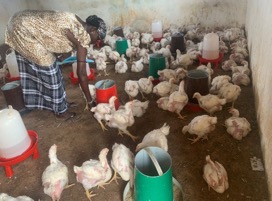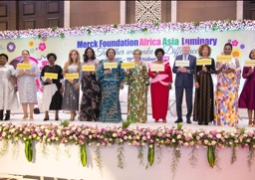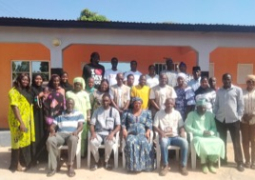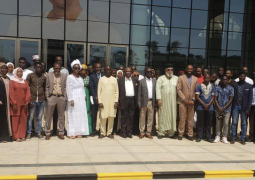
However, in search of means of livelihoods to sustain themselves during this period, the village women mobilised themselves and started a garden with the hope of generating incomes for a better life.
The farmers teamed up to dig wells measuring up to 18 meters deep for irrigation, only to be dismayed at poor yields due to the erratic nature of the ground water levels.
With the assistance of the Food and Agriculture Organization of the United Nations (FAO) through the Adapting Agriculture to Climate Change Project (AACCP) funded by the Global Environmental Facility (GEF), intervention with a poultry farm as a climate change adaptation measure to diversify their means of livelihood, the community experienced a watershed moment. “This farm is transforming our lives daily; our members are fully and productively engaged, and our living conditions have improved,” Fatoumatta Sowe, the leader of the women’s group explained.
The women’s group called “Wellingara Association” was given day-old chicks as seed capital to run a poultry farm some months ago with the expectation that they sell the birds when they matured and plough back the proceeds to sustain the much-needed intervention.
In search of clues on how FAO’s AACCP is changing lives in rural Gambia, FAO visited the community and noticed good progress.
According to partners, they found women beaming with smiles perhaps to the inspiring success they registered at the farm.
The association has already raised D100,000 from the first batch of birds they received as seed capital some months ago and have already restocked the poultry with 600 birds, from the proceeds of the initial sale.
Fatoumatta Sowe added that this is their first breakthrough, saying some of the birds bought are already matured for the market. She said customers such as lodge owners and restaurateurs within the region as well as people from nearby communities have started to make bookings. She went on to say that they have a customer who comes from Serrekunda to buy 250 birds.
This confirms the growing sales and returns to profitability at the farm, likewise, the improved economic situation of these women could not have raised such income in their gardens in a short period, due to irregular water supply.
“In the past, we used to travel long distances to buy chicken thighs, especially during Ramadan. Sometimes our meat will defrost and get spoiled before we reach home. The money we spend on it is huge so we sometimes cook and consume some and end up experiencing gastrointestinal infectious diseases. Today, thanks to the AACCP project, we can buy as many portions of meat as we can afford,” said Jainaba Bah, one of the farmers.
Pateh Jawo, a livestock officer in Kerewan discussed the economic gains of poultry farming in NBR, which he said, is gaining momentum.
“Poultry farms sell birds for D300 each, if you multiply that by 500, you will notice the huge profit a farmer can make from poultry farming. Thanks to projects like AACCP, many livelihoods have changed.”





